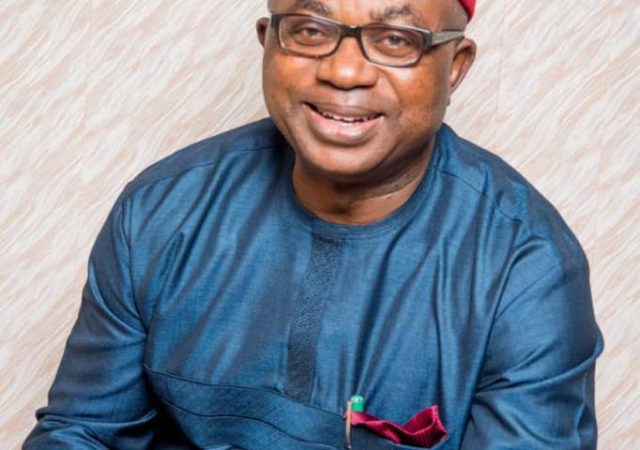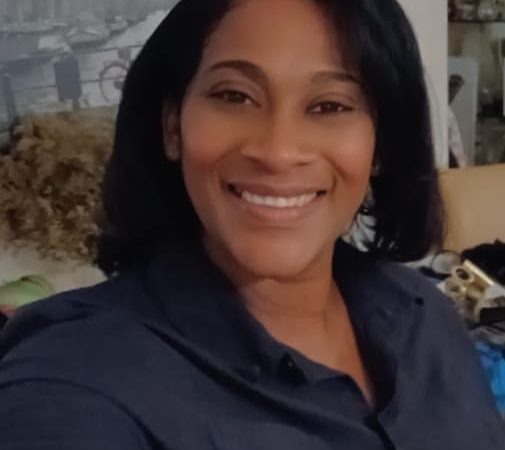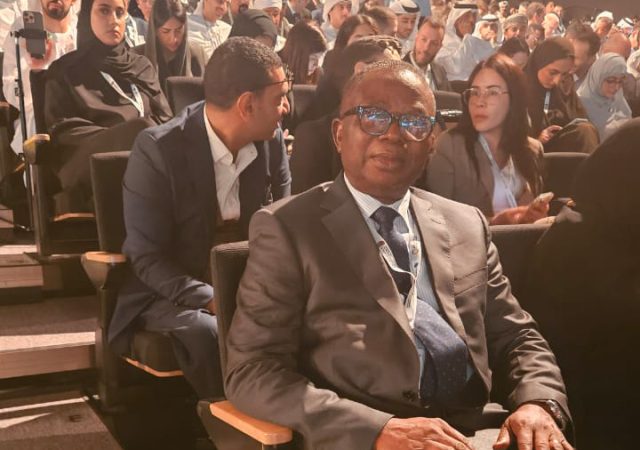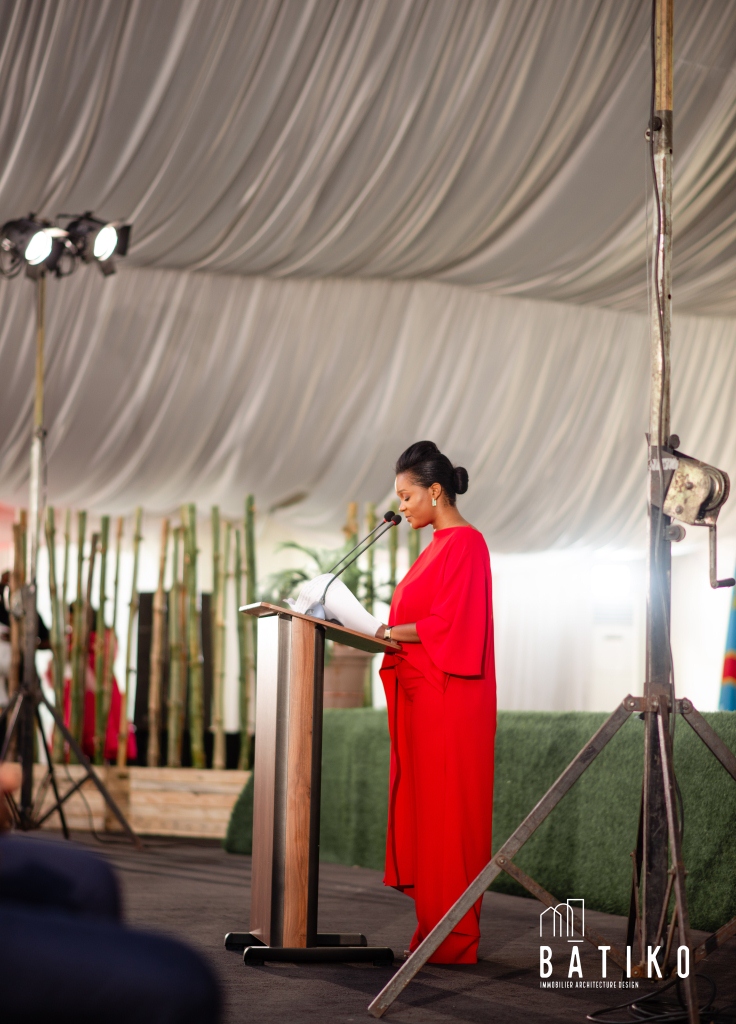
Samantha Kande Madia is the Founder/ CEO of LvB and Co, a firm that is into interior design and real estate. Samantha has been passionate about design since early childhood. She graduated in Interior Design at Collège du Vieux Montréal, Canada, and Business Administration at Université du Québec à Montréal. Samantha began her design career in 2013 in Montreal, Canada before moving to Kinshasa, Democratic Republic of the Congo (DRC) where she opened a flower and event decoration boutique. A painter in her spare time, she held a painting exhibition in the DRC at Kinshasa’s Grand Hôtel, in honor of the Congolese people who have been suffering violence and unrest for many years in the East of the country. With strong convictions for the progress and development of Africa, in 2022 she created Kollectif B, an agency for the promotion of Architecture and Design in Africa, and launched several initiatives, including Batiko, the Kinshasa International Real Estate, Architecture and Interior Design Show, and BatiPrize, the Congolese Architecture and Design Prize. The 3rd edition of Batiko will take place on October 6 and 7, 2024 in Kinshasa.
Samantha speaks exclusively to Sunday Oyinloye, Publisher, Green Savannah Diplomatic Cable
Excerpts:
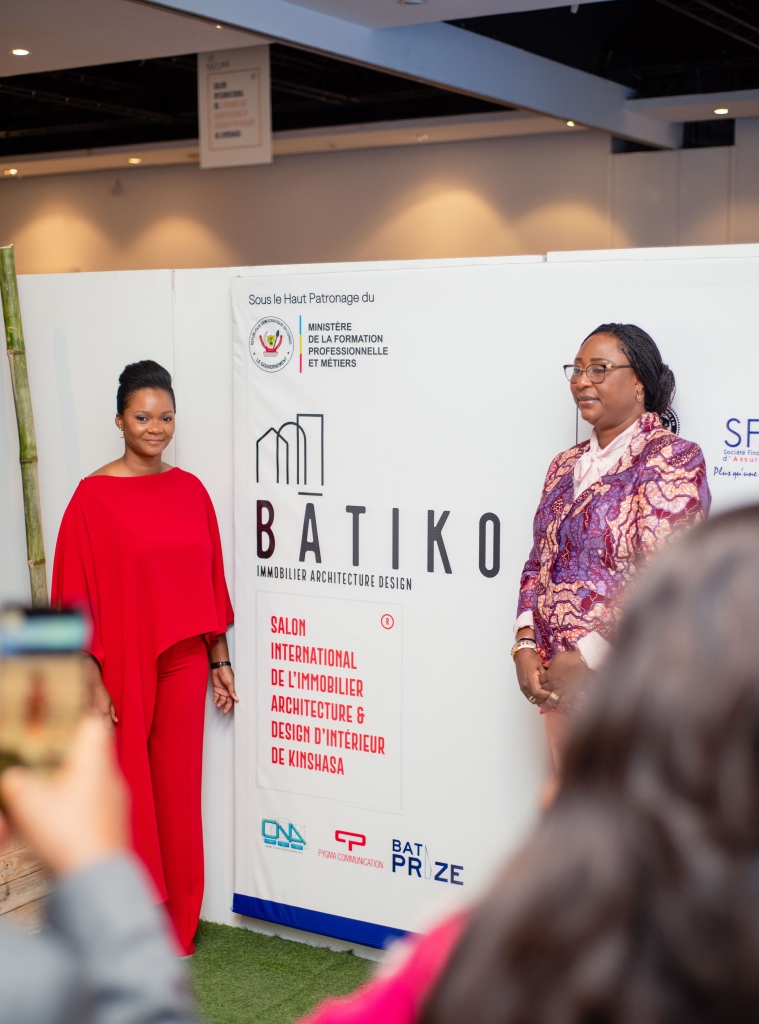
What informs your choice of Interior Design as a profession?
My dad. He has a natural good taste for decoration. I knew I wanted to be whether architect or interior designer since I was 8 years old. I loved being in beautiful places. Hotels have also inspired me, the quality of designs, finishing and furniture in some of them.
What were the initial challenges?
I started in Montreal and it’s totally different from DRC, where one of the biggest challenges is to bring the client to understand and respect the process. Congolese are used to do things on their own, they don’t trust companies, even though they get to understand more the importance of hiring a professional, it is still difficult to make them understand the importance of each of the actors in construction and the place of an interior designer.
Share with our readers the story behind BATIKO 2023?
The idea of Batiko came during covid in 2020. I had just started doing interior design again, this time in DRC, and then, I realised how Congolese were working. People could invest millions in a project with no contractor, the architect or the engineer. The client would hire himself, the workforce and monitors the site. But there is what we call best practices which normally should be followed. However, because the client has the money, he would want to be a law unto himself. In a country where poverty is felt around every corner, Professionals have not only lost their value to clients, but have also accepted practices that discredit the importance of their work. So, since professionals already exist, the aim is not to recreate but to restore the value they deserve, so that future projects are not only well conceived, but also well managed and, above all, beautiful. In this way, we can talk about investment and the creation of real estate projects, and all done by Congolese.
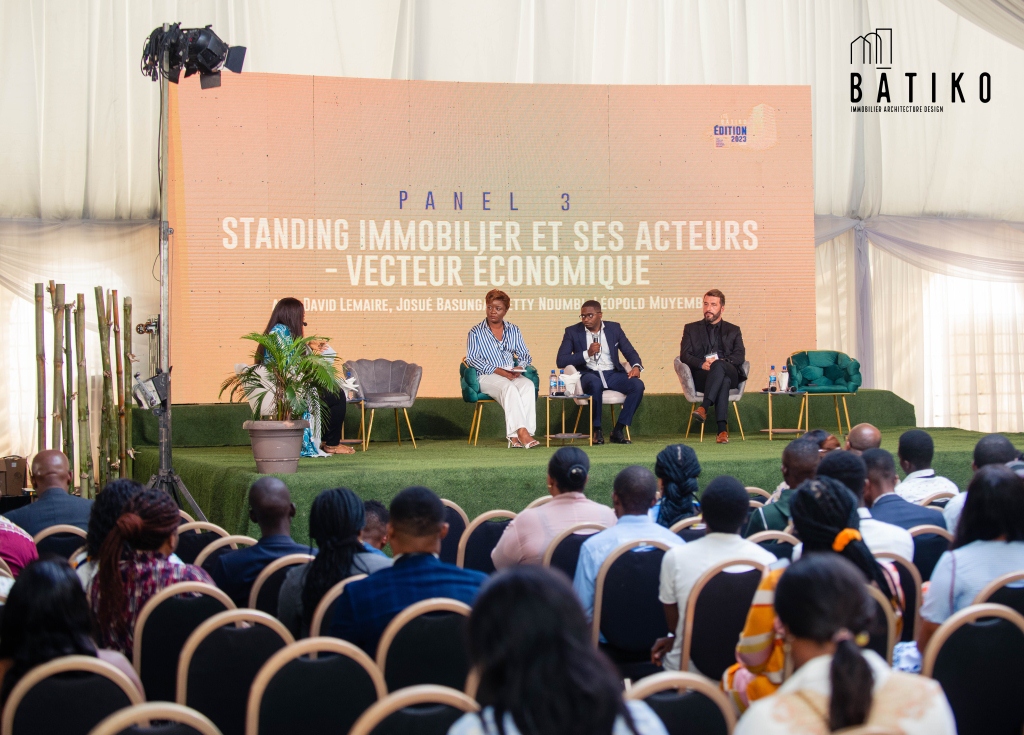
Would you describe BATIKO 2023 as a success?
According to participants, sponsors, exhibitors and speakers, yes, I believe them, and we’re still hoping to do better in the next edition.
Why do Africans go for foreign materials in interior designs and construction and how can this be reduced?
First, because it costs less, and secondly, because of the quality. The third reason is diversity and choice. For large a project that costs over $100,000, it’s worth importing materials. However, the solution is for the Congolese to learn to love their country and invest seriously in diversified, sustainable projects. There’s also lack of knowledge in this kind of project, and the Congolese are a little too fond of the easy way out. We need to have research centers and investment firms that understand this sector, so that investors can also turn to this kind of projects for the transformation or production of local materials, which is also very profitable. With a country of 95 million people, there’s room for all kinds of projects. At the last edition of Batiko, we talked a lot about bamboo, clay and wood. Batiko gives you the opportunity to find out about these materials in which you can invest, and to get the information, you need to get started. This is one of the topics to be covered at Batiko 2024.
What are you doing to create a new generation of Interior designers in your country?
First of all, we must get them to understand that we have to work professionally and that our work is very important to the society. We always like to take the example of developed countries, but they are also developed because they have learned that their environment is very important in their daily lives, and that taking care of it is an integral part of their well-being. The environment can’t be neglected. We are aware that well-being is a relative notion in Africa. The first resource of a country before the riches of the soil is the human resource. If designers and architects manage to work together and behave like true professionals, the world will say that the DRC has good designers and architects. That is what we hope to bring about through various initiatives including Batiko, the International fair of Real Estate, Architecture et Design of Kinshasa, the BatiPrize, the Congolese prize of architecture and design, the Index ArchiDesign guide, the ArchiDesign competition, the Index ArchiDesign online directory and other initiatives to come.
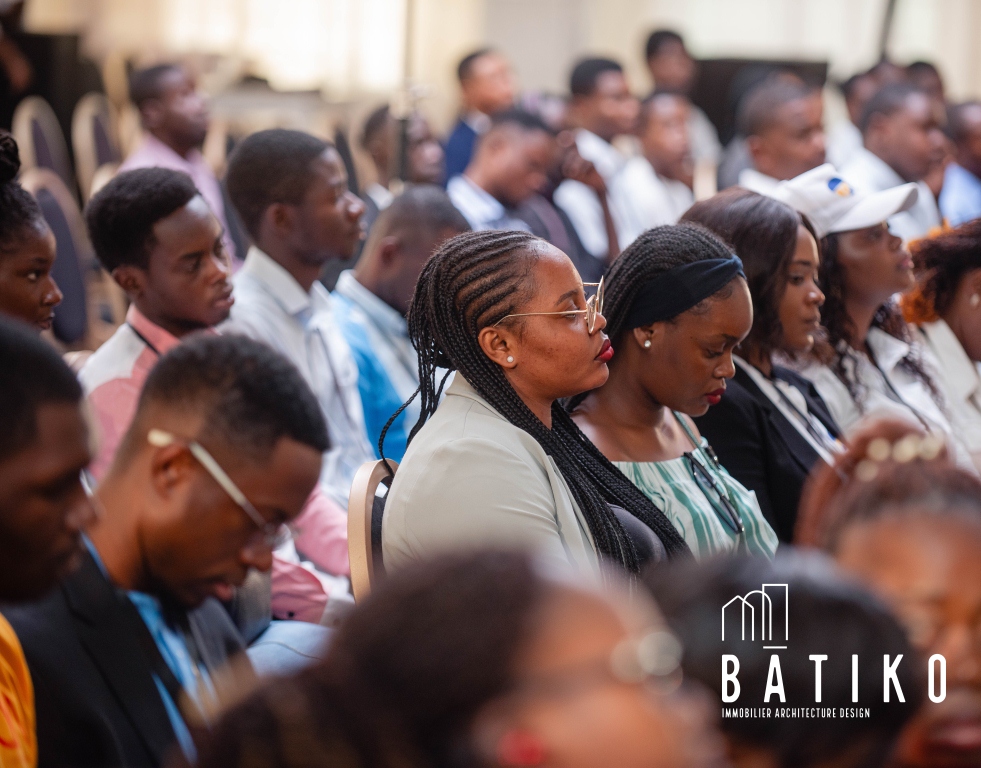
Are you planning to organise a bigger event in 2024?
I will rather say, better event. The venue, the program, the level of discussion being big is not important, the impact matters more.
Are you involved in any form of charity work and what are you doing to give back to the community?
Yes, we are working on raising a fund for the renovation of an orphan and we will later be involved in the construction of schools.





